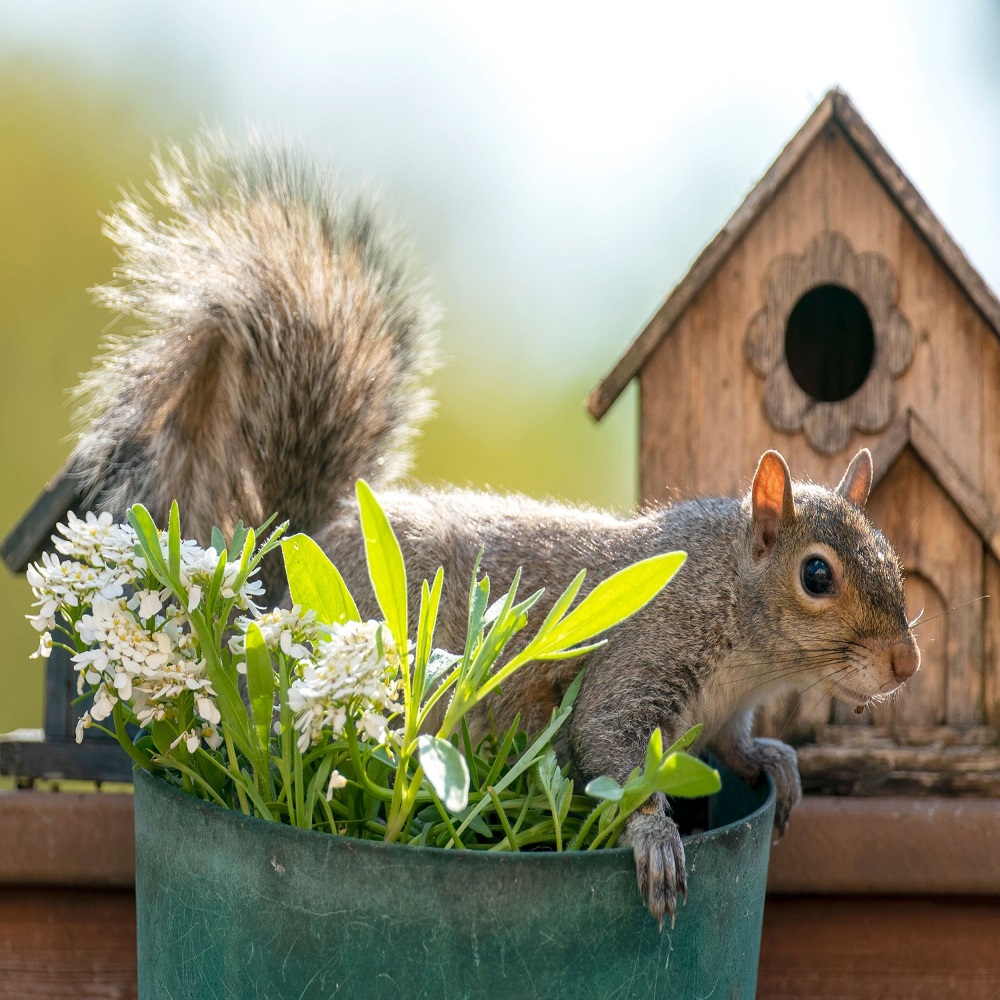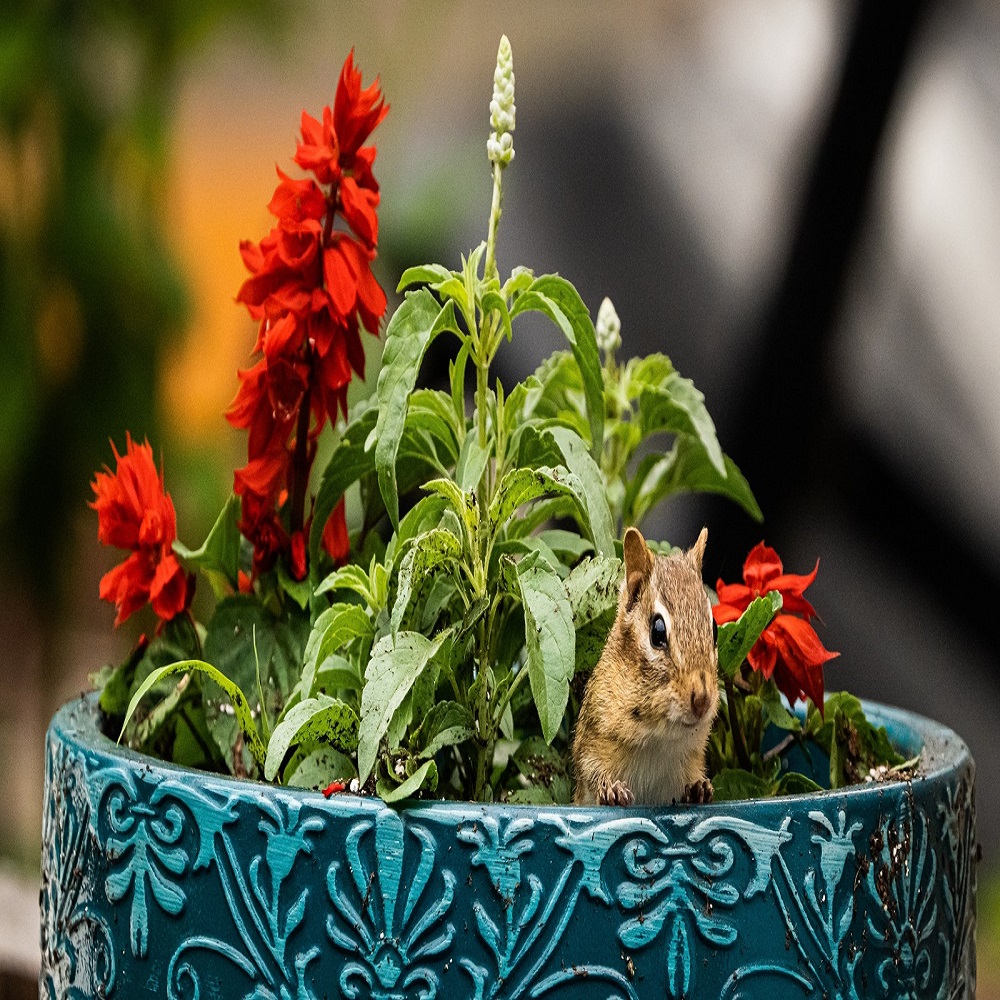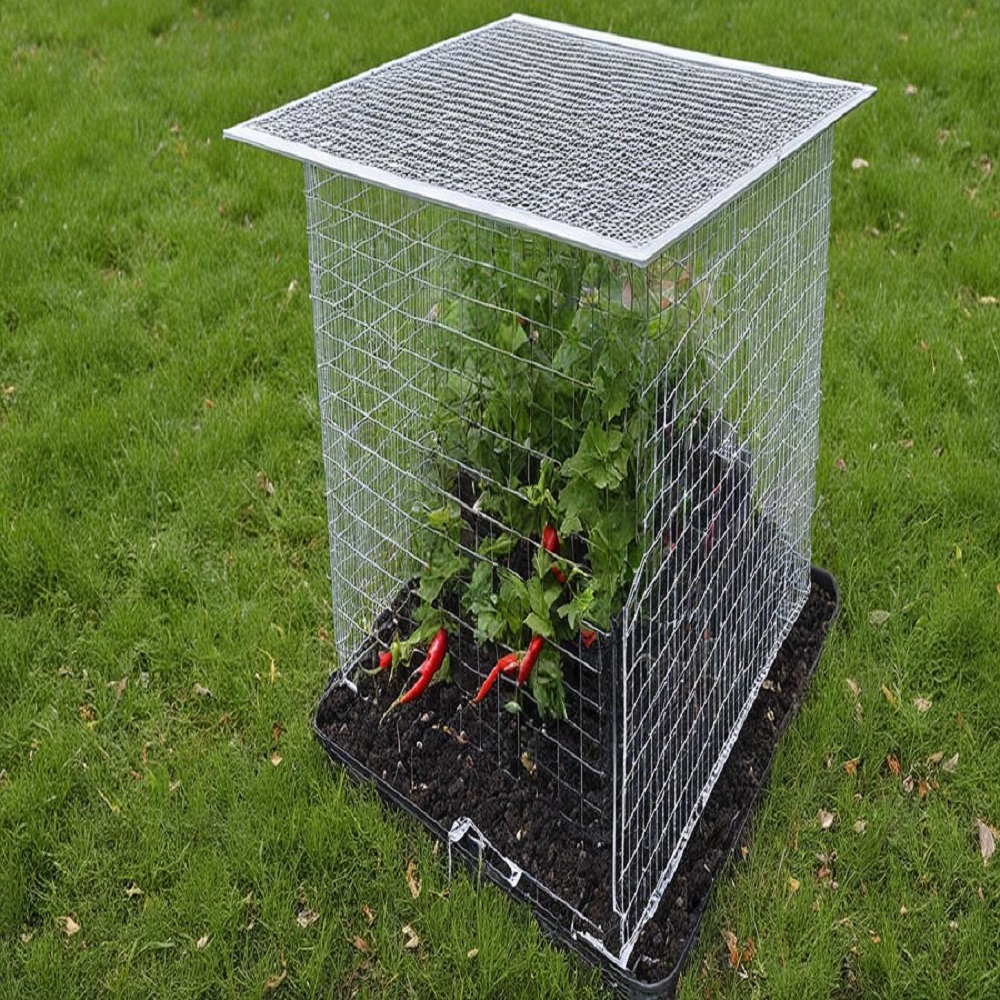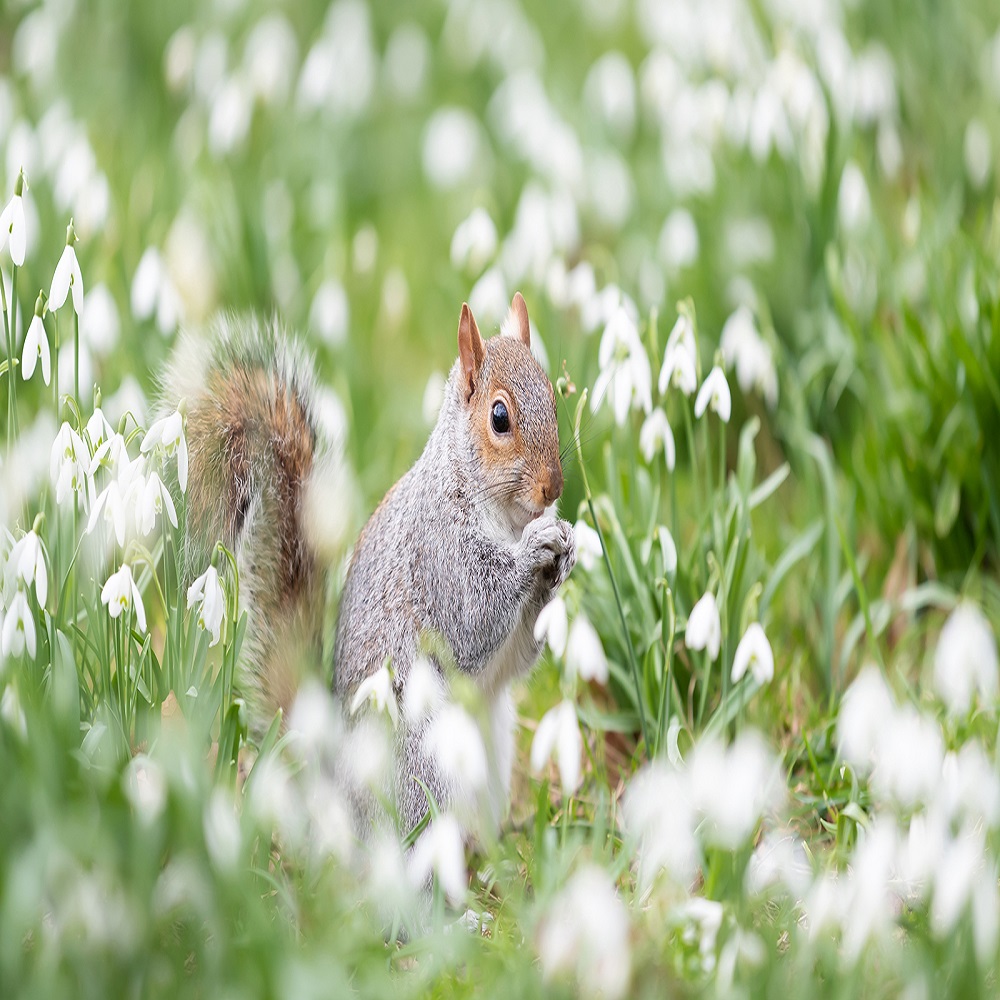Introduction to Squirrel Challenges in Flower Pots
Garden enthusiasts often face the challenge of squirrels invading their flower pots. These agile critters are not just cute but can cause genuine headaches for plant lovers. Squirrels typically intrude on flower pots for two main reasons: to hide their food stash or simply because the potting soil is softer and easier for them to dig through compared to the hard ground.
Having understood why squirrels target potted plants, gardeners can adopt effective strategies to deter these unwanted visitors. The key is to employ methods that are safe, eco-friendly, and do not harm the critters. From natural repellents utilizing common household ingredients to applying deterrents like chicken wire, gardeners have several tools at their disposal.
In this blog section, we will explore a variety of practical solutions, including natural repellents like spices, protective barriers to prevent digging, ultrasound devices, and the strategic use of certain plants known to repel squirrels. Our aim is to provide effective, yet humane ways to keep your flower pots squirrel-free and your plants thriving.
Recognizing Why Squirrels Target Potted Plants
Understanding why squirrels invade flower pots is crucial. It helps craft effective deterrents. These critters seek out potted plants primarily for two reasons. First, they find potting soil perfect for burying nuts and acorns. It’s softer and simpler to dig than hard-packed earth. Also, pots offer a hidden spot for their food stash. Second, squirrels may hunt for snacks among your plants. They can’t resist the chance to explore. Knowing this, we can plot squirrel-proof strategies. Create an uninviting environment for them without harm. With the right tactics, you can protect your beloved greens.

Practical Repellents: Natural and Homemade Solutions
Finding safe and eco-friendly ways to discourage squirrels from your flower pots can be simple and effective. Let’s look at some natural repellents you can create with everyday household items.
Using Spices and Household Ingredients as Repellents
Certain spices and ingredients can deter squirrels due to their strong scents. Here are some you can try:
- Cayenne pepper: Sprinkle it around your pots or mix it into homemade sprays.
- Cinnamon: A natural repellent that’s easy to apply directly to the soil.
- Garlic: Crush fresh garlic or use powder and spread it in your flower pots.
- Vinegar: Dilute with water and spray around the plants, but not on them.
Mix these ingredients to create a more potent repellent. Always refresh them regularly for lasting effects.
The Role of Protective Barriers: Wire Mesh and Chicken Wire
Creating a barrier can physically prevent squirrels from reaching your plants. Here’s how:
- Wire Mesh: Lay it just below the soil surface to block deep digging.
- Chicken Wire: Cover your pots with it, allowing for plant growth through the gaps.
Cut to fit the size of your pots and secure around the edges for best results. These barriers are simple yet very effective in keeping squirrels at bay.
Effective Use of Ultrasound and Other Devices
The use of devices can offer a hands-off approach to squirrel deterrence. Consider these options:
- Ultrasonic Repellers: Emit sound waves that are unpleasant to squirrels but inaudible to humans.
- Motion-Activated Devices: Some options combine sound with sprinklers to startle and chase away pests.
Place these devices strategically around your garden for coverage of all your potted plants. Remember, varying your methods may enhance the effectiveness of keeping squirrels out of your flower pots.
Gardening Tips: Plants That Deter Squirrels
Incorporating Squirrel-Repellent Plant Species
Certain plants act as natural deterrents for squirrels. Here’s how you can use them:
- Marigolds: Their strong scent is unappealing to squirrels.
- Alliums: These include onions, garlic, and chives, which all possess strong odors that squirrels dislike.
- Mustard plants: Their sharp smell keeps squirrels at bay.
- Nasturtiums: The pungent scent of these flowers is effective in repelling squirrels.
- Citronella plants: Known for repelling mosquitoes, their scent also deters squirrels.
Plant these around your flower pots or intersperse them among your garden beds. Their presence can naturally protect your other plants from squirrel damage.

Designing Squirrel-Proof Garden Layouts
Arrange your garden strategically to keep squirrels away. Here are some tips:
- Cluster deterrent plants around valuable pots: Surrounding susceptible flowers with squirrel-repellent plants can protect them.
- Use raised beds and containers: Elevate your plants. Squirrels are less likely to climb and dig.
- Integrate physical barriers: While planning your garden layout, include designs for meshes and coverings.
- Spatial arrangement: Place highly fragrant and deterrent plants at garden entries and near pathways.
By implementing these strategies, you strengthen your garden’s defense against squirrels. It preserves the beauty and bounty of your potted plants.
Physical Deterrents to Keep Squirrels Away
Creating physical barriers is a straightforward way to prevent squirrels from accessing your flower pots. These barriers frustrate squirrels’ attempts to dig and protect your cherished plants without harm.
Utilizing Pebbles, Stones, and Chicken Wire
Using pebbles and stones is a practical method. Place these on top of the soil in your pots. These materials make it difficult for squirrels to dig. Layer them about an inch deep for effectiveness. Make sure the stones are not too large. They could compress the soil and block water and air from reaching the roots.
Chicken wire offers additional protection. Cut it to cover your flower pots completely. Allow gaps large enough for plants to grow through. Secure it around the pot to prevent squirrels from accessing the soil. This method is particularly useful for bulbs.
Setting Up Motion-Activated Sprinklers
Install motion-activated sprinklers around your garden. These devices detect movement and spray water. The sudden spray startles and deters squirrels from entering the area. Place them strategically to cover all angles of your garden. Moreover, they help in watering your plants. This method is a dual benefit – deterring squirrels while nurturing your garden.
Long-Term Strategies for Squirrel Management
For effective long-term control of squirrels in your garden, consider these strategies:
Creating a Distraction with Alternative Food Sources
Offer squirrels alternative food options away from your flower pots. Set up a feeder in a part of your garden far from your pots. Use food they love, like seeds or nuts. This strategy can redirect their attention and decrease the likelihood of them disturbing your plants.
Regular Maintenance and Monitoring
Constantly check and refresh deterrent measures. Reapply natural repellents every few weeks. Inspect physical barriers for gaps or damages regularly. This maintenance ensures your strategies remain effective and your garden stays protected from squirrels.
Installing Physical Barriers
One of the most effective ways to keep squirrels out of your garden is by installing physical barriers. This can include mesh fencing, plant cages, or even wire netting around vulnerable plants or flower beds. Choose a fine mesh with small openings (about 1 to 2 inches) to prevent squirrels from squeezing through. Ensure the barriers are buried at least 6 inches into the ground to stop squirrels from digging under them. These physical deterrents, while more labor-intensive to install, offer a long-term solution to protect your plants from persistent squirrel damage.
Trapping and Relocation
For ongoing squirrel management, live trapping can be an option, particularly in areas with high squirrel populations. Use humane traps to capture squirrels, ensuring that the traps are checked regularly to prevent undue stress or harm to the animals. After capture, squirrels can be relocated to an area far enough from your property to reduce the likelihood of them returning. Keep in mind that trapping and relocation may be subject to local regulations, so it’s important to check your area’s guidelines before pursuing this method.

Using Predator Scents
Squirrels are naturally wary of predators, and their fear can be leveraged to deter them from entering your garden. Consider using scents or sprays that mimic the presence of predators such as foxes, coyotes, or hawks. These scents can be purchased from garden stores or made at home by using predator urine or essential oils. Apply these scents around the perimeter of your garden or near vulnerable plants. This strategy taps into the squirrels’ instinctual fear, encouraging them to stay away from your garden without causing harm to the animals.
